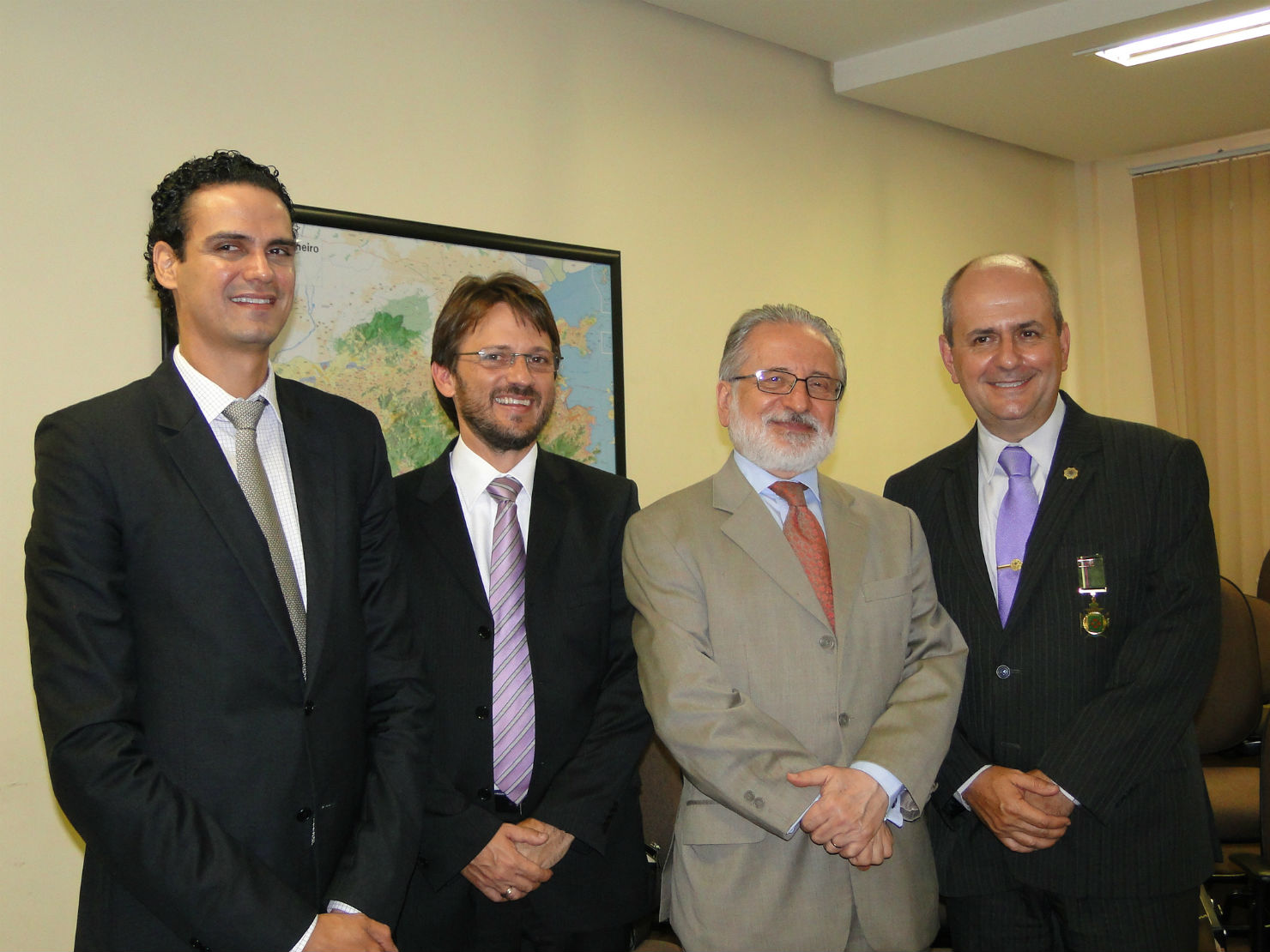Rio de Janeiro joins the Free City of Piracy program
From left to right: Paulo Abrão, Alexander da Costa, Roberto Abdenur and Henrique de Castro - commander of the Municipal Guard
In a ceremony held at the headquarters of the Municipal Guard of Rio de Janeiro, on April 4, the president of the National Council to Combat Piracy (CNCP), Paulo Abrão, and the special secretary of Public Order, Alexander Vieira da Costa, signed the agreement that includes Rio de Janeiro at Cidade Livre de Pirataria. Today, the program includes São Paulo, Curitiba, Distrito Federal, Belo Horizonte and Osasco.
The CNCP president highlighted the importance of the city for the expansion of the program. “For us, Rio de Janeiro is a priority due to the volume of visitors and the demand for Brazilian products. We want to defend our original products and decrease informal trade. The image of the country to the world is at stake ”, said Abrão.
The special secretary of Public Order, Alex Costa, said that the partnership with the Ministry of Justice will be an important contribution to the actions to curb the irregular street commerce that the Special Secretariat of Public Order (Seop) has carried out since its creation, in January 2009 .
“The agreement with the federal government is extremely beneficial, as it reinforces the position of the Rio city hall, through the Special Secretariat for Public Order, in repressing the sale of products without origin,” said Alex Costa.
ETCO President Roberto Abdenur reaffirmed the position of the city of Rio de Janeiro on the world stage by citing a fact from the time that he was Brazil's ambassador to Germany. "A survey carried out in Germany asked local citizens what was the first memory they had when the name of Brazil was mentioned: 65% of respondents answered that it was Rio de Janeiro," said Abdenur.
Since 2010, 23 cigarette packs, 6,5 media (CD, DVD, etc.) and 6 electronic devices, among other pirated products, have been seized by the Federal Highway Police in the State of Rio. Rua Uruguaiana, in the center of the capital, is one of the main points of apprehension.
Even before the signing of the agreement with the federal government, the Special Secretariat of Public Order of Rio de Janeiro carried out several actions to curb the performance of illegal street vendors and the sale of products without origin, seizing about 500 thousand pirated media in the city, among January 2009 and March 2012.




